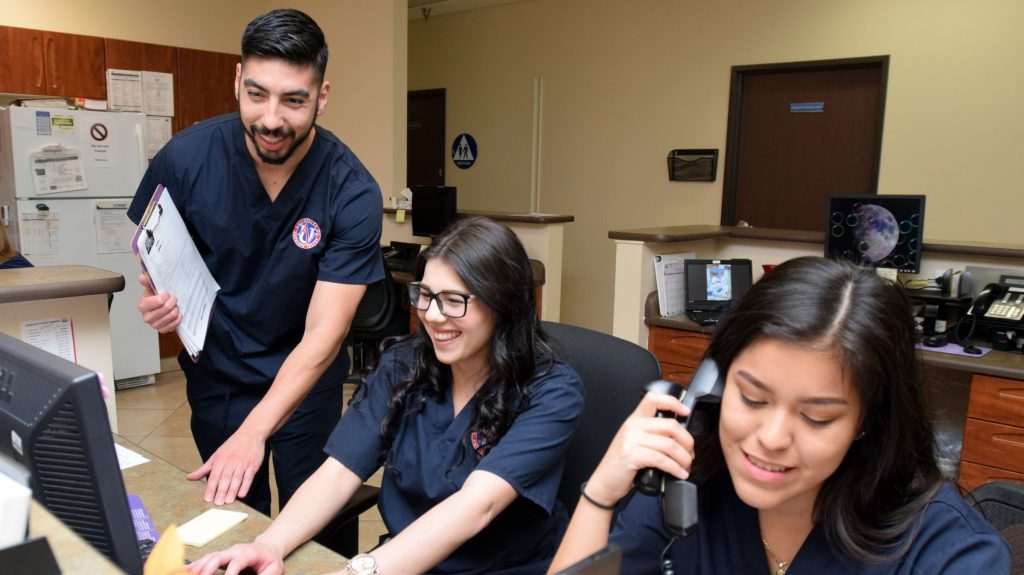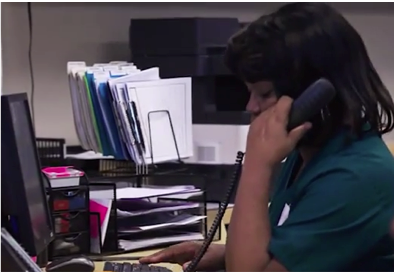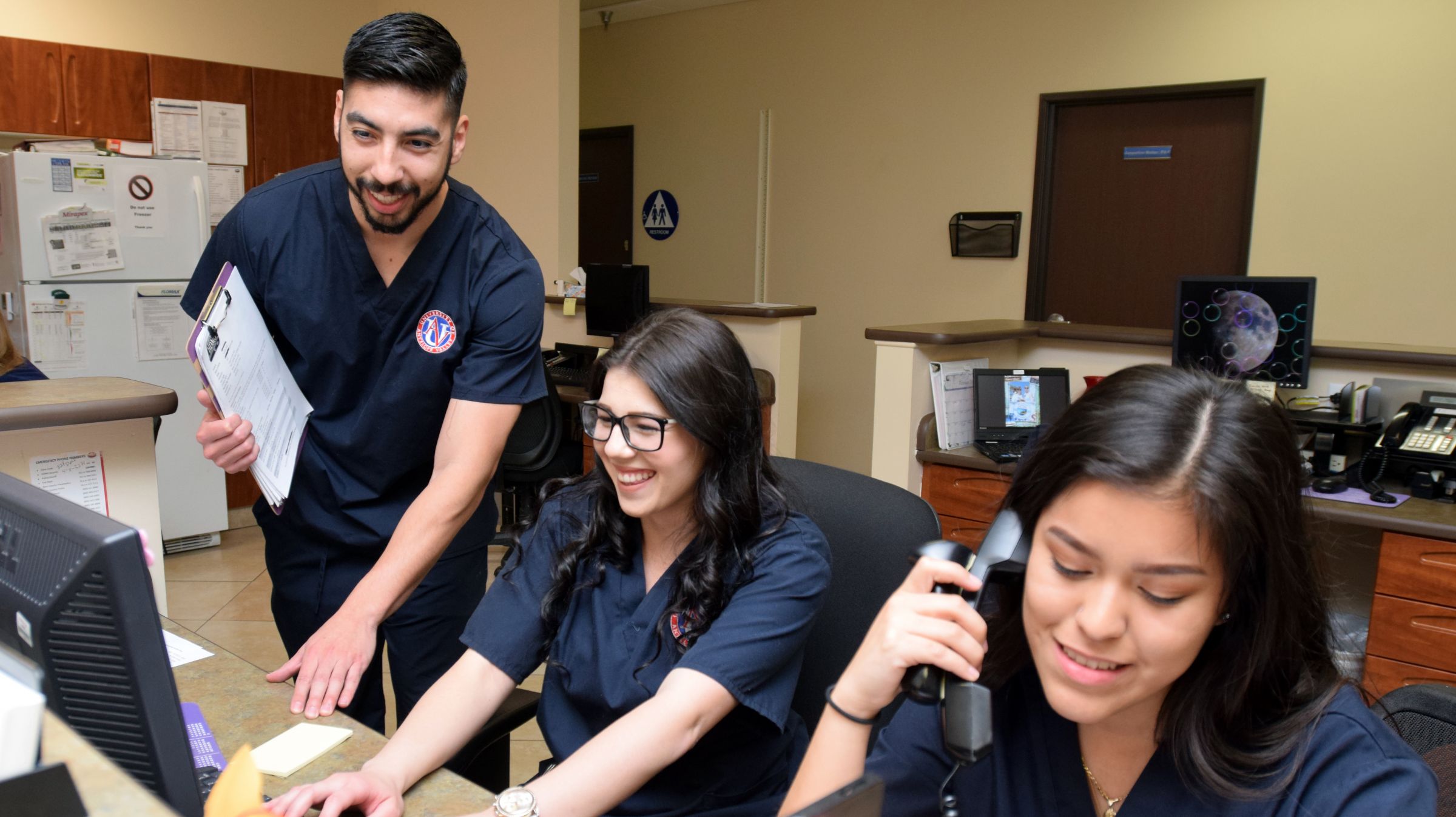In the ever-evolving landscape of healthcare, the role of a medical biller is crucial in ensuring that providers are reimbursed for their services. But what sets apart a good medical biller from the rest? In this article, we will delve into the key traits, skills, and knowledge that make a medical biller excel in their profession. From attention to detail and organizational skills to proficiency in medical coding and billing software, we will explore the qualities that contribute to the success of a medical biller. Whether you are considering a career in medical billing or are already working in this field and looking to enhance your skills, this article will provide valuable insights and guidance to help you become a top-notch medical biller. So, let’s dive in and discover what it takes to be a good medical biller!
Skills and Qualifications
A good medical biller possesses a combination of technical skills, industry knowledge, and personal attributes that are crucial in performing their role effectively. Whether working in a hospital, clinic, or a private practice, these professionals play a vital role in ensuring that healthcare providers receive accurate and timely reimbursement for the services they provide. Let’s explore the key skills and qualifications that make a good medical biller.
Knowledge of Medical Terminology
One of the essential skills for a medical biller is a strong understanding of medical terminology. A good medical biller needs to be familiar with medical terms, diagnoses, procedures, and medications in order to accurately assign the correct billing codes to patient records. This knowledge allows them to communicate effectively with healthcare providers and ensure that information is accurately coded for billing purposes. A medical biller should be able to translate complex medical terminology into the appropriate billing codes.
Understanding of Insurance Coding
In addition to medical terminology, a good medical biller must have a deep understanding of insurance coding. It is their responsibility to ensure that claims are coded correctly, using the appropriate codes for diagnoses, procedures, and services provided. Insurance coding is a complex process that requires attention to detail and the ability to interpret and apply coding guidelines accurately. This skill is vital as it directly impacts the reimbursement process and helps avoid claim denials or delays.
Attention to Detail
Attention to detail is a critical skill for a medical biller. They need to meticulously review patient records, insurance documents, and billing codes to ensure accurate and complete information. A good medical biller must be able to identify any errors or discrepancies in the billing process that could lead to claim denials or delayed payments. By being diligent and thorough in reviewing documents, they can help minimize errors and ensure that claims are processed correctly, leading to timely reimbursement for healthcare providers.
Analytical Skills
Medical billing involves analyzing complex billing information and resolving issues that may arise during the billing process. A good medical biller should possess strong analytical skills to be able to identify and investigate any discrepancies, errors, or issues that can affect billing and reimbursement. By applying critical thinking and problem-solving skills, they can efficiently resolve billing errors, reconcile payments and denials, and ensure that all necessary documentation is accurate and complete.
Communication Skills
Effective communication is crucial in the field of medical billing. A good medical biller needs to be able to communicate clearly and professionally with healthcare providers, patients, and insurance companies. They must be able to explain complex billing processes, insurance terms, and claim information to patients, ensuring they understand their financial responsibilities. Additionally, strong communication skills allow medical billers to liaise with insurance companies to obtain necessary information and resolve any billing issues that may arise.
Expertise in Medical Billing Systems
To be successful in their role, a good medical biller must have expertise in medical billing systems. These systems are used to manage and process claims, generate invoices, and track the reimbursement process. Medical billers should be familiar with Electronic Health Records (EHR) systems, as they are commonly used in healthcare settings to store patient information and billing data. Proficiency in medical billing software is also crucial, as this software allows medical billers to accurately generate invoices and track claim statuses.
Familiarity with Electronic Health Records (EHR)
Electronic Health Records (EHR) systems have become the norm in healthcare settings, replacing traditional paper-based record-keeping. A good medical biller should be familiar with EHR systems and understand how to navigate through them efficiently. They need to retrieve patient information, review medical histories, and access billing data within the EHR system to accurately code and generate invoices. Having a strong understanding of EHR systems streamlines the billing process and ensures efficient and accurate billing.
Proficiency in Medical Billing Software
Medical billers are responsible for generating accurate and timely invoices for services rendered. This requires proficiency in medical billing software, which allows them to enter and process billing information accurately. They should be comfortable using billing software to input patient demographics, treatment codes, and insurance details. Proficiency in medical billing software ensures that claims are generated correctly and submitted in a timely manner, leading to prompt reimbursement for healthcare providers.
Ability to Generate Accurate Invoices
Accurate invoicing is a critical aspect of medical billing. A good medical biller needs to ensure that invoices are generated correctly and contain all relevant billing codes, insurance information, and patient details. This accuracy ensures that healthcare providers are reimbursed correctly for the services they provide. By double-checking and validating all information before generating invoices, medical billers can minimize the potential for errors and delays in payment.

Understanding of Insurance Guidelines
Medical billers interact extensively with insurance companies and must have a solid understanding of insurance guidelines. These guidelines outline the coverage limits, reimbursement rates, and billing requirements for different insurance plans. A good medical biller needs to know the intricacies of different insurance plans, including government programs like Medicare and Medicaid, as well as private insurance providers. This knowledge allows them to accurately verify insurance coverage and ensure that claims are submitted correctly to insurance companies.
Knowledge of Different Insurance Plans
There are various types of insurance plans, each with its own set of coverage rules and requirements. A good medical biller should be well-versed in the different types of insurance plans, including PPOs, HMOs, and government-funded programs like Medicare and Medicaid. With this knowledge, they can navigate the intricacies of each plan and determine the correct billing procedures and codes to use. By understanding the different insurance plans, medical billers can ensure the claims submitted meet the specific requirements of each insurance provider.
Ability to Verify Insurance Coverage
Verifying insurance coverage is an essential step in the medical billing process. A good medical biller should have the ability to accurately verify a patient’s insurance coverage before services are rendered. This involves contacting the insurance company, confirming the patient’s eligibility, and understanding the coverage limitations. By verifying insurance coverage upfront, medical billers can ensure that patients are aware of their financial responsibilities and avoid potential claim denials due to inadequate coverage.
Familiarity with Claim Submission Processes
Submitting claims to insurance companies is a fundamental aspect of medical billing. A good medical biller should be well-versed in the claim submission processes of various insurance providers. This includes understanding the required forms, the preferred method of submission (electronic or paper), and any specific documentation or attachments that need to be included. With this knowledge, medical billers can submit claims accurately and within the insurance company’s specified timeline, minimizing delays in reimbursement.
Accuracy in Documentation and Coding
Accurate documentation and coding are essential skills for a medical biller. The coding process involves assigning the correct billing codes, such as International Classification of Diseases (ICD-10) and Current Procedural Terminology (CPT), to patient records. Documentation involves ensuring that all necessary information is recorded accurately and completely. A good medical biller must have a thorough understanding of coding guidelines and requirements to assign the appropriate codes and maintain compliance with legal and regulatory standards.
Proper ICD-10 and CPT Coding
ICD-10 and CPT codes are used to describe medical diagnoses, procedures, and services. A good medical biller needs to have a solid understanding of these coding systems to accurately assign the correct codes to patient records. The proper use of these codes ensures that claims are processed correctly and reimbursed at the appropriate rate. By staying updated with coding changes and attending ongoing training, medical billers can provide accurate coding and documentation, avoiding claim denials and minimizing errors.
Compliance with Legal and Regulatory Requirements
Medical billing is subject to various legal and regulatory requirements. A good medical biller should be aware of these requirements and comply with them consistently. This includes maintaining patient confidentiality, adhering to the guidelines set forth by the Health Insurance Portability and Accountability Act (HIPAA), and respecting ethical standards in all billing processes. By maintaining compliance with legal and regulatory standards, medical billers ensure confidentiality, protect patient rights, and maintain the integrity of the billing process.
Ongoing Training to Stay Updated with Coding Changes
Medical coding is a dynamic field that undergoes frequent updates and changes. To stay effective in their role, a good medical biller should pursue ongoing education and training to stay updated with coding changes and industry trends. This ensures that they have the latest knowledge and skills required to accurately code and document patient records. By staying updated, medical billers can minimize claim denials, optimize reimbursement rates, and provide valuable guidance to healthcare providers on coding and billing practices.

Attention to Detail and Problem-Solving
Medical billing involves a multitude of details and potential challenges. A good medical biller possesses strong attention to detail and problem-solving abilities to navigate through complex billing processes with ease. They must be able to identify billing errors, resolve billing discrepancies, and reconcile payments and denials efficiently. By addressing problems promptly and proactively, medical billers contribute to the overall financial health of healthcare providers and maintain a smooth billing process.
Identifying Billing Errors
Billing errors can occur for various reasons, such as incorrect coding, missing information, or discrepancies in patient records. A good medical biller must have the ability to identify these errors and address them promptly. By conducting thorough reviews of patient records, invoices, and payment documentation, medical billers can catch and rectify any errors or inconsistencies. This attention to detail ensures accuracy in billing and improves the likelihood of timely reimbursement for healthcare providers.
Resolving Billing Discrepancies
Discrepancies in billing can arise due to factors such as rejected claims, denied payments, or discrepancies between insurance coverage and services provided. A good medical biller needs to have excellent problem-solving abilities to investigate these discrepancies and resolve them effectively. They may need to communicate with insurance companies, healthcare providers, and patients to gather necessary information and clarify any discrepancies. By proactively addressing billing discrepancies, medical billers help minimize payment delays and maintain positive relationships with patients and insurance companies.
Ability to Reconcile Payments and Denials
Reconciling payments and denials is an important task for medical billers. They need to cross-reference payments received with the amount billed and identify any discrepancies. In cases where claims are denied or only partially paid, medical billers must investigate the reasons behind the denial and take appropriate action to rectify the situation. By accurately reconciling payments and denials, medical billers help healthcare providers maintain accurate financial records and ensure that any outstanding payments are appropriately addressed.
Applying Critical Thinking in Complex Cases
Medical billing can involve complex cases that require critical thinking and problem-solving skills. Some scenarios may involve insurance disputes, unclear documentation, or the need to navigate convoluted billing processes. A good medical biller should possess the ability to analyze these scenarios, identify potential solutions, and propose viable courses of action. Applying critical thinking allows them to find creative solutions to complex billing challenges, ultimately leading to accurate reimbursements for healthcare providers.
Ethical and Professional Conduct
Ethics and professionalism are essential qualities for any medical biller. These professionals handle sensitive and confidential patient information on a daily basis and must maintain high ethical standards in their work. By maintaining patient confidentiality, adhering to HIPAA guidelines, and respecting ethical standards, a good medical biller ensures the privacy and trust of patients and contributes to the overall integrity of the healthcare industry.
Maintaining Patient Confidentiality
Patient confidentiality is of utmost importance in medical billing. A good medical biller must handle patient information with care and ensure that it remains confidential at all times. This includes securely storing patient records, limiting access to authorized personnel, and following HIPAA guidelines regarding the protection of patient privacy. By maintaining patient confidentiality, medical billers contribute to the trust and confidence patients have in the healthcare system.
Adhering to HIPAA Guidelines
The Health Insurance Portability and Accountability Act (HIPAA) sets forth guidelines for the protection of patient health information. A good medical biller must be familiar with and adhere to HIPAA regulations to ensure the privacy and security of patient data. This includes understanding the rules surrounding the electronic transmission of patient information, maintaining appropriate safeguards to protect patient privacy, and reporting any breaches in accordance with HIPAA guidelines. By demonstrating a strong commitment to HIPAA compliance, medical billers safeguard patient information and maintain the integrity of the billing process.
Respecting Ethical Standards
Ethical standards govern the conduct and behavior of medical billers. A good medical biller should adhere to established ethical guidelines and conduct themselves in an ethical and responsible manner. This includes maintaining honesty and integrity in all billing practices, avoiding conflicts of interest, and acting in the best interests of patients and healthcare providers. By demonstrating ethical behavior, medical billers foster trust and confidence among patients, healthcare providers, and insurance companies.
Professional Communication with Patients and Insurance Companies
Professional communication is essential in the field of medical billing. A good medical biller should possess strong communication skills and be able to convey complex billing information in a clear and understandable manner. They must communicate professionally and respectfully with patients to explain insurance terms, financial responsibilities, and the billing process itself. Additionally, effective communication with insurance companies is crucial to resolve billing issues, verify coverage, and ensure that claims are processed accurately. By maintaining professional communication, medical billers instill confidence in patients and foster positive relationships with insurance companies.

Organizational and Time Management Skills
Medical billers often handle multiple tasks simultaneously and must be able to manage their time effectively to meet deadlines. They must also maintain clean and organized records to ensure accurate and efficient billing processes. A good medical biller possesses strong organizational and time management skills to handle the demands of the role and maintain efficiency in their work.
Managing Multiple Tasks Simultaneously
Medical billing involves juggling multiple tasks, such as reviewing patient records, submitting claims, verifying insurance coverage, and reconciling payments. A good medical biller should be able to manage these tasks simultaneously without compromising accuracy or attention to detail. By prioritizing tasks and efficiently allocating time and resources, medical billers can ensure that all responsibilities are fulfilled and deadlines are met.
Meeting Deadlines
Timeliness is crucial in medical billing. Insurance companies have specific timelines for claim submission, and healthcare providers rely on timely reimbursement for their services. A good medical biller must be able to manage their workload effectively and meet deadlines consistently. They should have a keen sense of prioritization and be able to allocate time and resources accordingly. By meeting deadlines, medical billers contribute to the financial stability of healthcare providers and maintain positive relationships with insurance companies.
Prioritizing Workload
Effectively prioritizing tasks is a skill that medical billers must possess. They need to determine the urgency and importance of each task and allocate their time and resources accordingly. By prioritizing their workload, medical billers can ensure that critical tasks are completed first, minimizing any potential disruptions or delays in the billing process.
Maintaining Clean and Organized Records
Accurate record-keeping is crucial in medical billing. A good medical biller must maintain clean and organized records to ensure easy access and retrieval of information when needed. This includes storing patient records, insurance information, and billing documentation in an organized manner. By maintaining clean and organized records, medical billers contribute to the efficiency of the billing process and minimize the potential for errors or delays.
Financial Knowledge
A good medical biller should have a solid understanding of medical billing and reimbursement processes. This includes interpreting Explanation of Benefits (EOB), identifying and preventing fraudulent practices, and ensuring compliance with financial regulations. By possessing financial knowledge, medical billers play a vital role in the financial health of healthcare providers and help ensure accurate reimbursement for services rendered.
Understanding of Medical Billing and Reimbursement
Medical billing is intricately connected to the financial aspects of healthcare. A good medical biller should have a strong understanding of medical billing and reimbursement processes, including how claims are processed, how reimbursements are calculated, and how payment cycles work. This knowledge allows them to navigate through the intricacies of the billing system and ensure accurate and timely reimbursements for healthcare providers.
Ability to Interpret Explanation of Benefits (EOB)
Explanation of Benefits (EOB) is a document that provides a detailed breakdown of how a claim was processed by the insurance company. A good medical biller should be able to interpret and understand the information provided in the EOB. This allows them to identify any discrepancies, denials, or underpayments and take appropriate action to rectify the situation. By effectively interpreting EOBs, medical billers help ensure that healthcare providers receive the appropriate reimbursement for their services.
Identifying and Preventing Fraudulent Practices
Medical billing fraud is a significant concern in the healthcare industry. A good medical biller should be knowledgeable about the common types of fraudulent practices and be vigilant in identifying and preventing them. This includes recognizing potential red flags, such as unbundling of services, upcoding, or billing for services not rendered. By actively monitoring for fraudulent practices and reporting any suspicions, medical billers contribute to the integrity of the medical billing process and protect the interests of patients and healthcare providers.

Interpersonal Skills
Interpersonal skills are vital for a good medical biller as they often collaborate with healthcare providers, staff, patients, and insurance companies. Effective teamwork, empathy, and conflict resolution abilities are essential qualities that allow medical billers to build positive relationships and navigate through complex interactions.
Collaboration with Healthcare Providers and Staff
Medical billers often work closely with healthcare providers and staff members, such as physicians, nurses, and administrative personnel. A good medical biller should possess collaborative skills and the ability to work effectively as part of a multidisciplinary team. By fostering open communication, sharing relevant information, and maintaining a positive working relationship, medical billers contribute to the overall efficiency of the billing process and ensure accurate documentation and coding.
Effective Teamwork
Medical billing involves collaboration with various stakeholders, including healthcare providers, insurance companies, and patients. A good medical biller should be able to work effectively as part of a team, both within the billing department and across departments in a healthcare facility. This includes actively participating in team discussions, sharing knowledge and expertise, and supporting colleagues when needed. By demonstrating effective teamwork, medical billers enhance the overall efficiency and effectiveness of the billing process.
Empathy and Compassion when Dealing with Patients
Patients often have questions and concerns about their medical bills, insurance coverage, and financial responsibilities. A good medical biller should possess empathy and compassion when interacting with patients, addressing their concerns, and providing clear explanations. They should understand the impact that medical billing can have on patients and strive to ensure that billing processes are transparent, understandable, and sensitive to patients’ needs. By demonstrating empathy and compassion, medical billers help foster positive patient experiences and enhance patient satisfaction.
Conflict Resolution
Conflicts can arise in the medical billing process, such as disputes with insurance companies, denied claims, or discrepancies in coverage. A good medical biller should possess conflict resolution skills to navigate through these challenges effectively. This includes actively listening to all parties involved, seeking a common ground, and proposing viable solutions. By resolving conflicts in a professional and efficient manner, medical billers contribute to the smooth operation of the billing process and maintain positive relationships with stakeholders.
Conclusion
In conclusion, a good medical biller possesses a combination of technical skills, industry knowledge, and personal attributes that enable them to excel in their role. They have a strong understanding of medical terminology and insurance coding, pay meticulous attention to detail, and possess analytical skills to navigate through complex billing processes. Good medical billers have expertise in medical billing systems, including familiarity with Electronic Health Records (EHR) and proficiency in medical billing software. They understand insurance guidelines, are accurate in documentation and coding, and possess problem-solving abilities. Ethical and professional conduct, organizational and time management skills, financial knowledge, and interpersonal skills are also important attributes of a good medical biller. By exhibiting these qualities, a good medical biller ensures efficient billing processes, accurate reimbursements, and positive interactions with patients and insurance companies. Continuous learning and adaptability are also essential in this field, as medical billing practices and requirements evolve over time. With their expertise, ethical conduct, and commitment to excellence, a good medical biller plays a crucial role in the financial health of healthcare providers and contributes to the overall quality of patient care.

